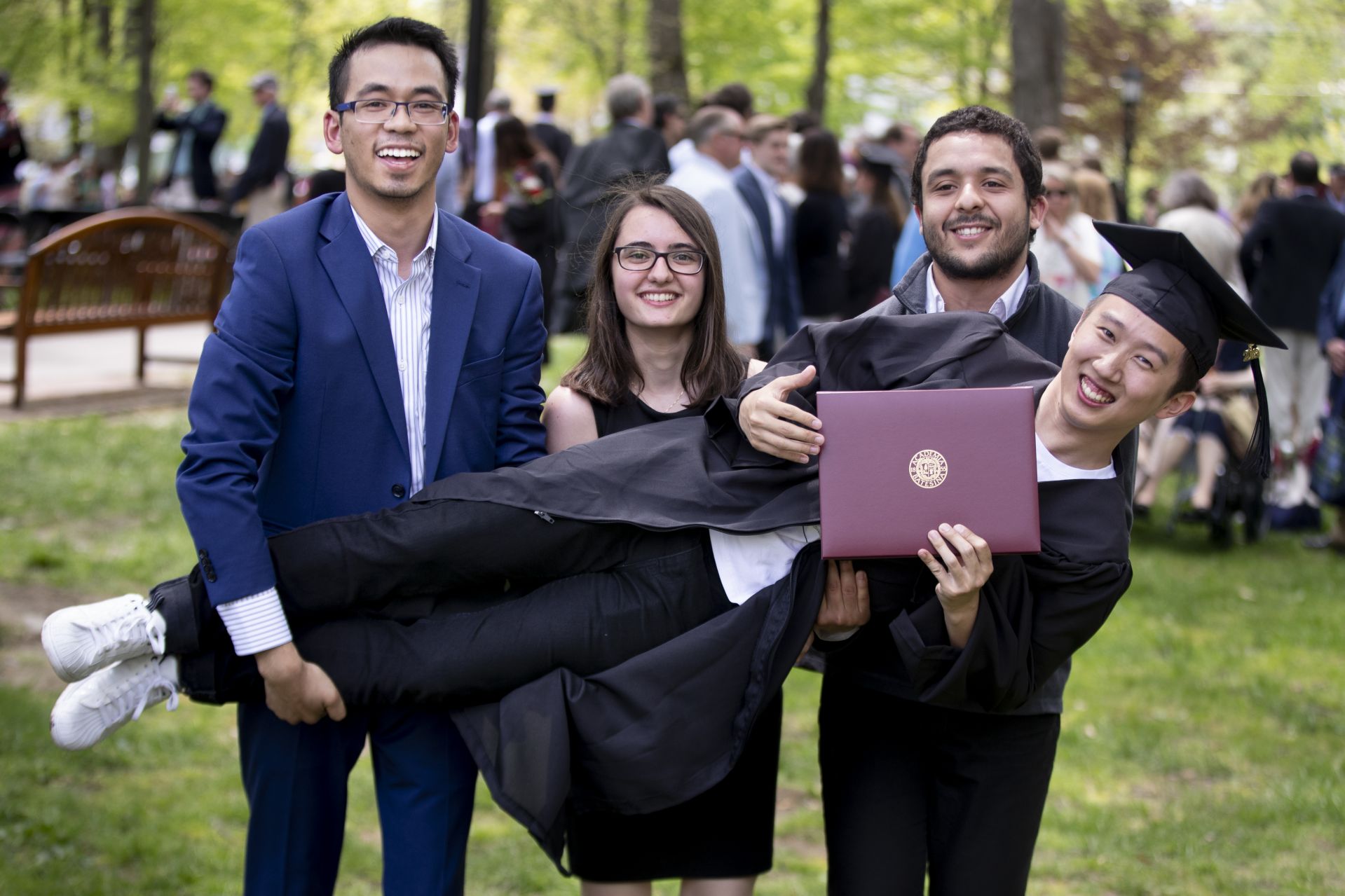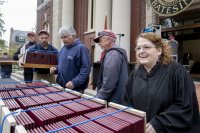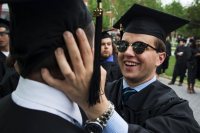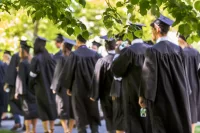
For the Class of 2024 and their families, May 26, 2024, is an ending point, or a pause, a moment to celebrate the great achievement of a Bates education before heading out into the world.
At the same time, Bates alumni through the years are set to return to Bates in two weeks for Reunion, including alumni from the milestone 5th, 10th, 25th, and 50th classes.
Watch Commencement Live
The livestream of Bates Commencement on May 26, 2024, will be publicly available on a wide array of platforms:
- Bates Website: bates.edu/live
- Facebook: facebook.com/batescollege
- LinkedIn: linkedin.com/school/bates-college/
- Instagram: instagram.com/batescollege
- YouTube: youtube.com/batescollege
With a four-camera setup, the livestream will show everything that takes place!
With a fond farewell (for now) to our seniors, here’s a look back at past Commencements that our alumni will recall as their own — plus a look way back at graduations 75, 100, and 150 years ago, and a long walk from the Chapel to the Armory.
150 Years Ago: Eighth Commencement, June 18, 1874
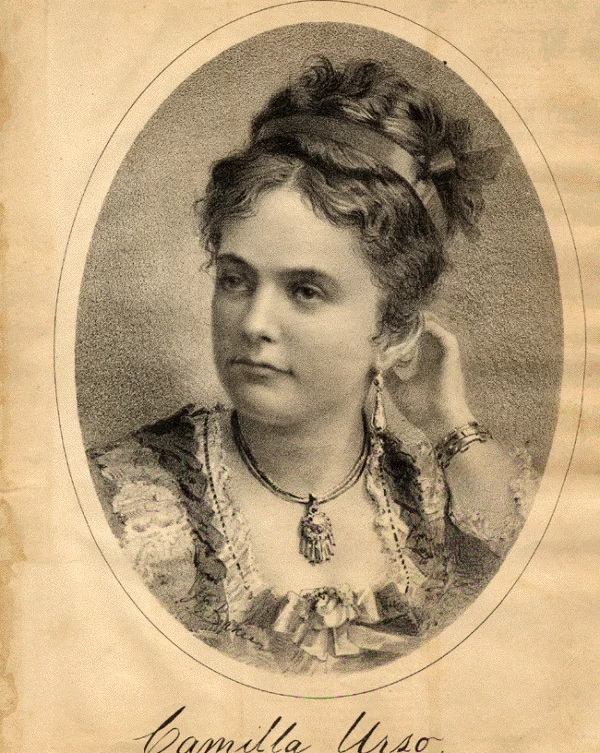
Speaker: After graduation, the Rev. Andrew Preston Peabody delivered an address at the Commencement dinner on the topic of “Culture of the Christian Scholar.”
Peabody was Harvard’s Plummer Professor of Christian Morals and preacher, posts that the late Rev. Peter Gomes ’65 assumed more than a century later.
Notable guest: Camilla Urso, a French-born child prodigy violinist who became famous in the U.S. in the late 1800s, performed at the Commencement Concert two days before graduation.
Commencement CatFact: Henry W. Chandler, the first Black graduate of Bates, delivered the satirical “class prophecy” at Commencement. It was full of pithy “hits,” reported the Bath (Maine) Daily Times.
100 Years Ago: 58th Commencement, June 18, 1924
Speaker: Rather than an invited guest as a Commencement speaker, members of the senior class gave addresses. Florence Hodgkins of Lisbon Falls spoke on “Political Parties and Democracy.”
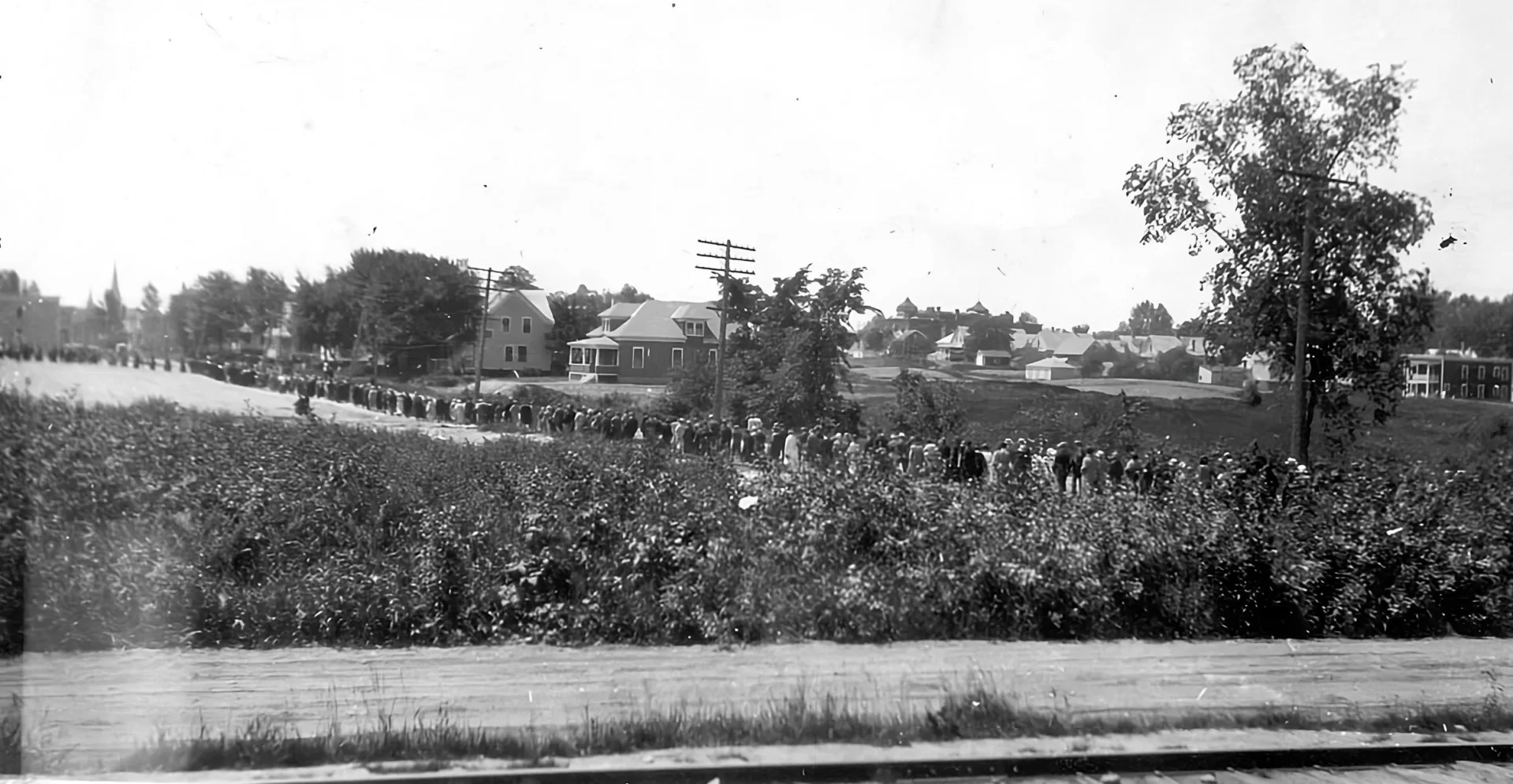
Prescient insight: “Members of political parties sometimes live in the past. Others shape their beliefs in line with questions of the day.”
Notable honorary degree: Sally Lucas Jean, a nurse who pioneered health education in the U.S. and globally. She served on boards of leading American health associations, spearheaded public health projects worldwide, and transformed thinking on contemporary public health education.
Commencement CatFact: It was the largest Bates graduating class to that point, with 111 seniors.
75 Years Ago: 83rd Commencement, June 11, 1949
Speaker: Gen. Lucius D. Clay, administrator of Germany after World War II who gave the order for the Berlin Airlift after the Soviets imposed the Berlin Blockade. (Clay was unable to attend, so his speech was read by senior Frank Chapman ’49.)
Prescient insight: Like many leaders of his time, Clay wrestled the tension between individual freedom and the real or perceived threat from the Soviet Union’s emergence as a superpower.
“To preserve freedom while preventing its use to destroy itself is difficult. We have only to remember that we have nothing to fear from those who speak frankly and openly, but that we must abhor those who meet to plot in secrecy the modification or destruction of our way of life. Let us hope that we shall never reach a point when in the so-called interest of security we suppress the freedom of the individual to speak as he thinks.”
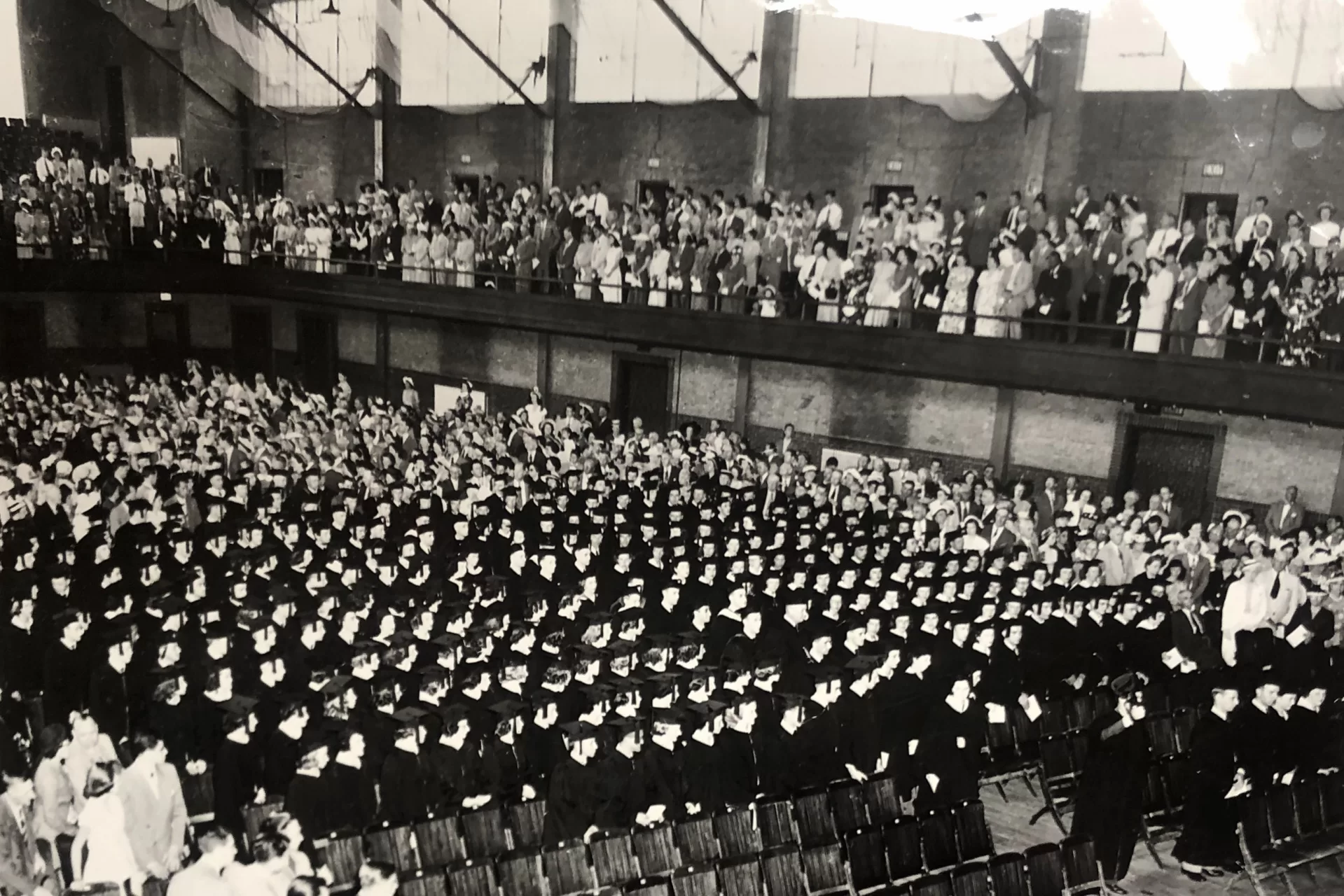
Notable honorary degree recipient: Women’s fashion industry leader Dorothy Shaver, the first woman in the U.S. to head a multimillion-dollar firm, Lord & Taylor.
Commencement CatFact: This was the first Commencement held in the Armory, on Central Avenue, rather than the Chapel. The event would move to the lawn in front of Coram Library in 1971.
50 Years Ago: 108th Commencement, June 10, 1974
Speaker: Gerard Piel, president and publisher of Scientific American.
Key prediction: “When you come back to Lewiston for your 25th Reunion in 1999,” he told the graduates, “the world population will stand somewhere between seven and eight billion people. At that time, the question will be whether or not the world’s population will have passed a point of no return, the point past which it will no longer be possible to bring the members of our species under control.”
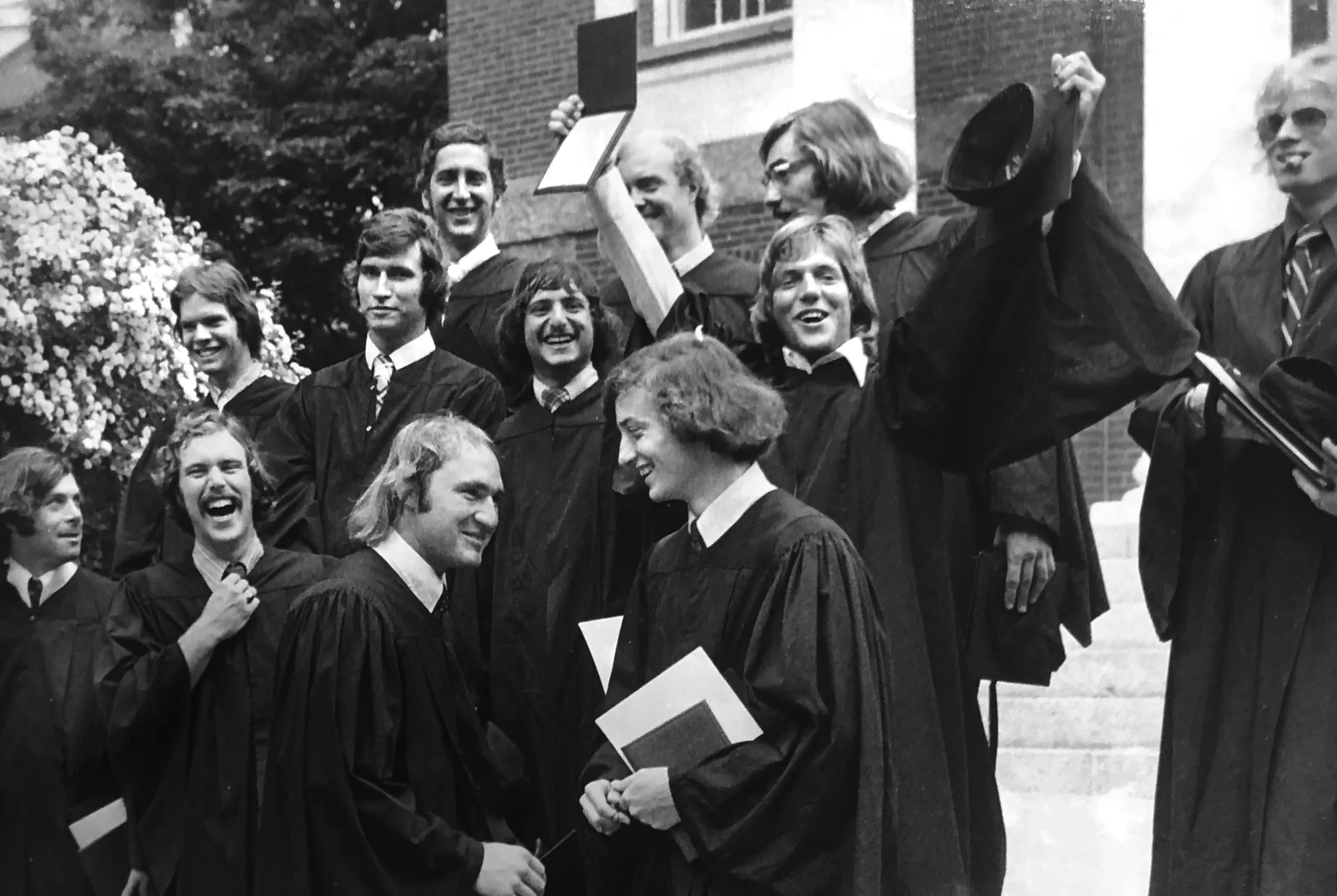
Result: Piel and many other experts predicted that overpopulation and its effects were the great looming crisis of the last part of the 20th century.
But by the time the Class of 1974 returned to Bates for Reunion in 1999, the population of the planet was “only” six billion, and the crisis did not unfold, due to many factors, including family Planning and contraception, economic development, and government policies like China’s one-child policy.
Notable honorary degree recipient: Sally Harkness of The Architects Collaborative, the lead architect for Bates’ Ladd Library, which had opened in 1973. The building’s bold, modernist style represented a severe, effective, and appropriate break with Bates architectural tradition.
“By the felicitous recognition of this gifted architect, the college notes its own pride in the new library which she designed,” noted her degree citation. “It must always be the college’s task to…have reflected in its buildings the changing shapes of human perception, the historicity of human design. Today we celebrate affirmation of that task.”
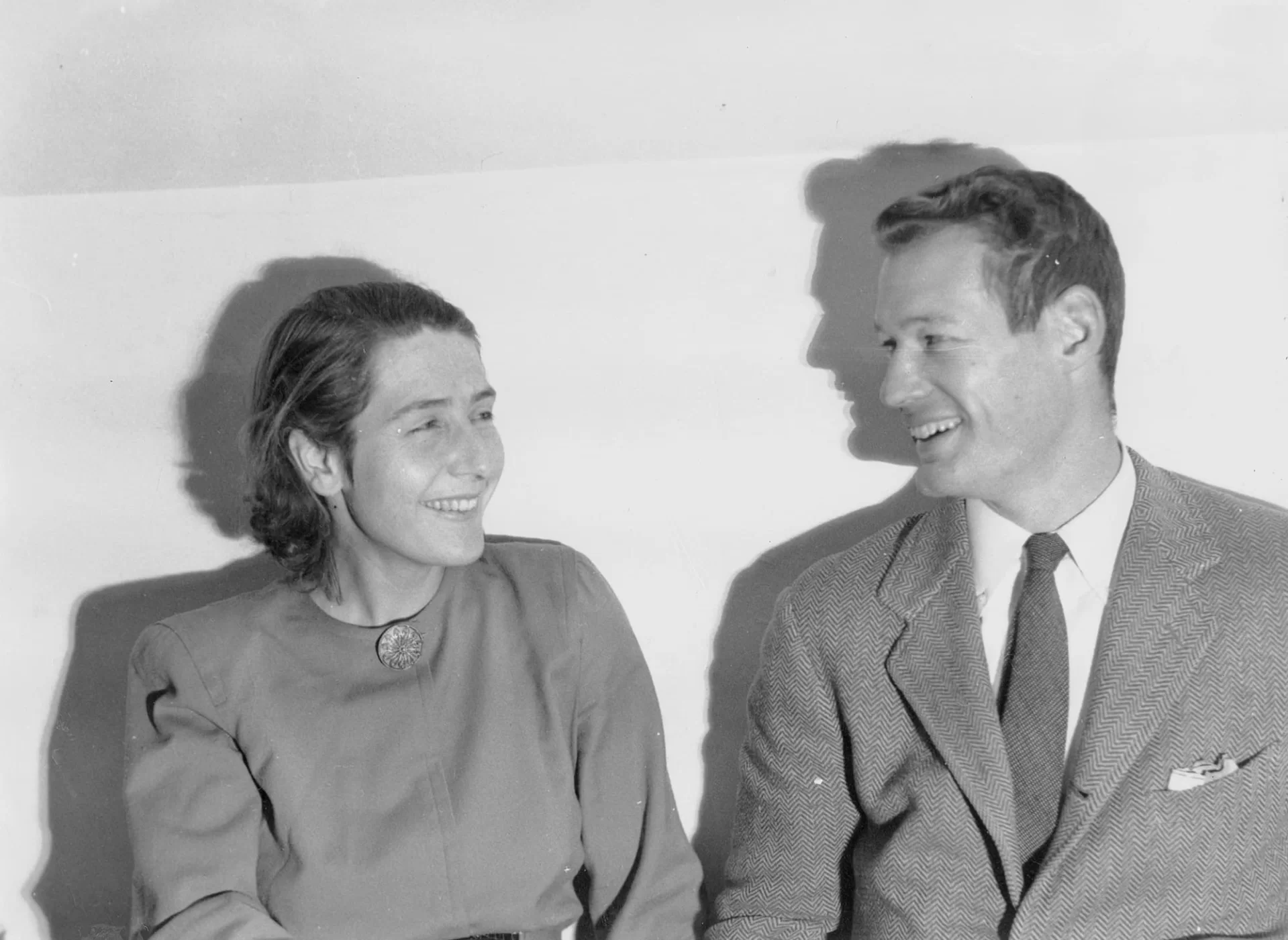
25 Years Ago: 133rd Commencement, May 31, 1999
Speaker: Richard Holbrook, at the time President Clinton’s nominee for United Nations ambassador who served in the position from September 1999 to January 2001.
Key prediction: “One way or another, NATO troops will be in Kosovo by the end of this year. I’m not here to predict how that will unfold. I would be misleading you if I predicted a timetable for success. Failure, however, is unthinkable. I can assure you that 19 NATO nations are in the end going to prevail.”
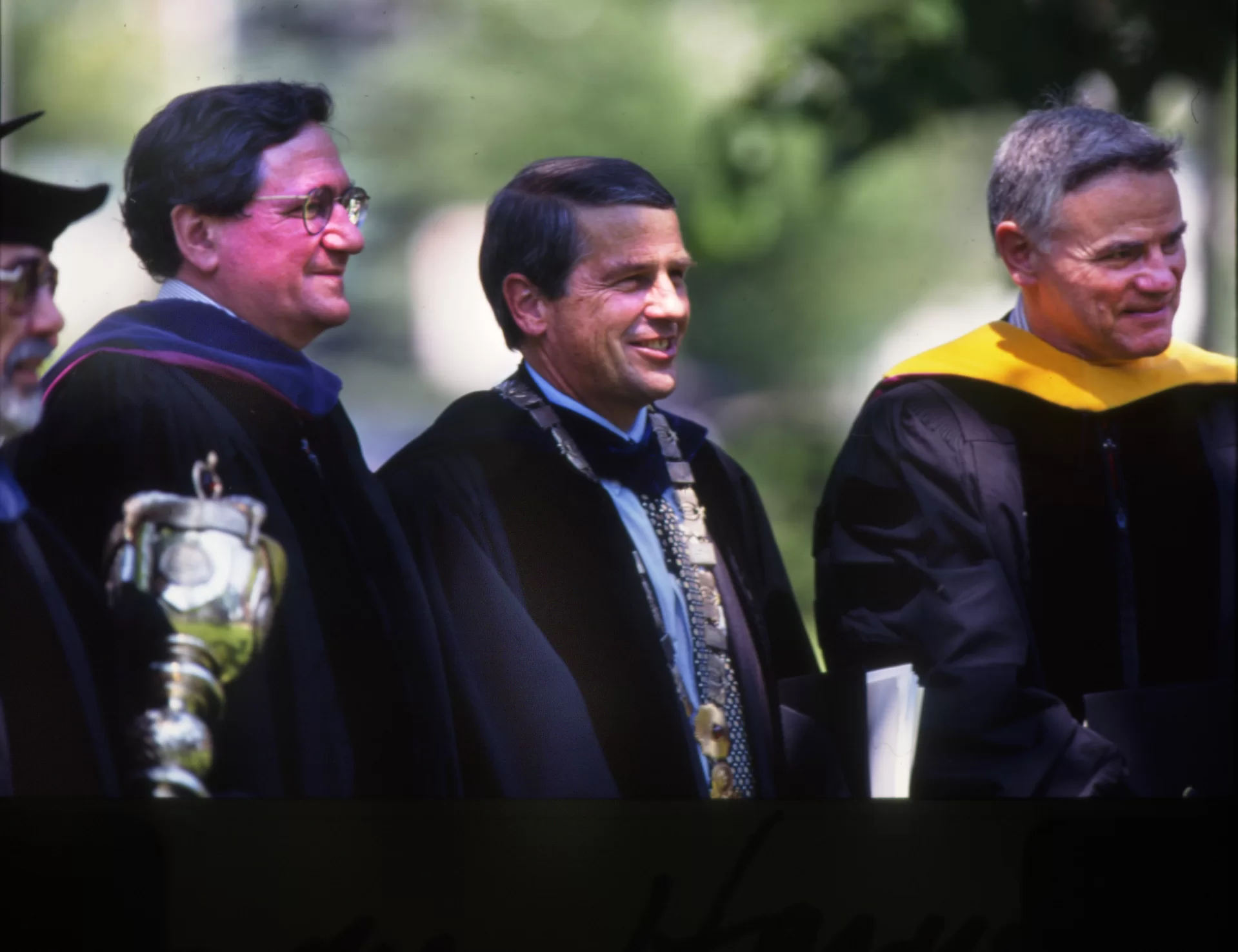
Result: NATO ground troops entered Kosovo on June 12, 1999, after a NATO bombing campaign against Yugoslavia aimed at halting the humanitarian crisis and widespread violence during the Kosovo War. Peace was slowly established.
Notable honorary degree recipient: Biologist Leroy Hood, a 2011 National Medal of Science Laureate and recognized as one of the world’s leading scientists in molecular biotechnology and genomics.
His development of the DNA sequencer, DNA synthesizer, and other instruments resulted in the successful mapping of the human genome that revolutionized biomedicine and forensic science.
Commencement CatFact: With events in Kosovo changing rapidly, Holbrook was whisked away from campus to the Auburn-Lewiston Airport immediately after the ceremony so he could return to Washington.
10 Years Ago: 148th Commencement, May 25, 2014
Speaker: Isabel Wilkerson, author of The Warmth of Other Suns.

Prescient insight: “We have gone from the triumph of the 1960s [with the passage of the Voting Rights Act and Civil Right Act], when the country became a true democracy — by opening doors for women, for Black people, for non-European immigrants and for the disabled — to the now coarser, harsher public discourse of today, with one racially charged case after another making headlines, with crude racial outbursts by public figures and with worsening disparities between Blacks and whites in every sphere of life.”
Notable honorary degree recipient: Glenn Close, an actress renowned for her ability to bring characters to vivid life and an activist in the fields of mental health and wildlife conservation.
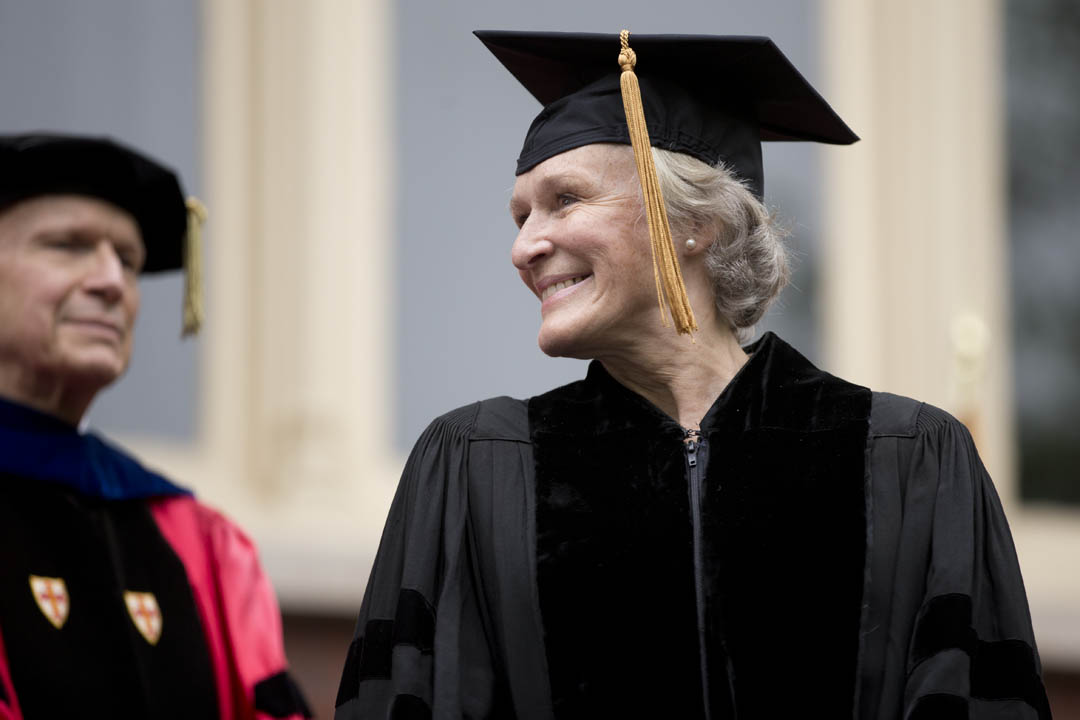
Commencement CatFact: Wilkerson surprised her audience by quoting Bates’ second Black graduate, Thomas James Bollin of the Class of 1879, who spent the first 18 years of his life as an enslaved person.
Wilkerson quoted from Bollin’s essay as a student in The Bates Student, in which he said that “social equality is the brotherhood of man in every condition,” which Wilkerson said was “a beautiful definition of equality. “
Five Years Ago: 153rd Commencement, May 26, 2019
Speaker: Jennifer Doudna, a key participant in the discovery of the CRISPR-Cas9 technology, a radically accessible approach to editing the DNA of any organism.
Prescient insight: For too long, Doudna said, scientists have failed to broadly communicate the substance and implications of their work.
“We must rebuild public trust in our work, and we must explain to our fellow citizens why our work matters, not just to publish the next academic article or to make the next advance in our field, but truly to advance human knowledge and to improve the human condition.”
Notable honorary degree recipient: Travis Mills, a Maine resident and Army veteran who became a quadruple amputee in combat and is now an advocate for combat-injured veterans.
Commencement CatFact: A rare triple major that year was Max Huang, who majored in economics, mathematics, and physics, and is now pursuing a doctorate in electrical engineering at Northwestern.
